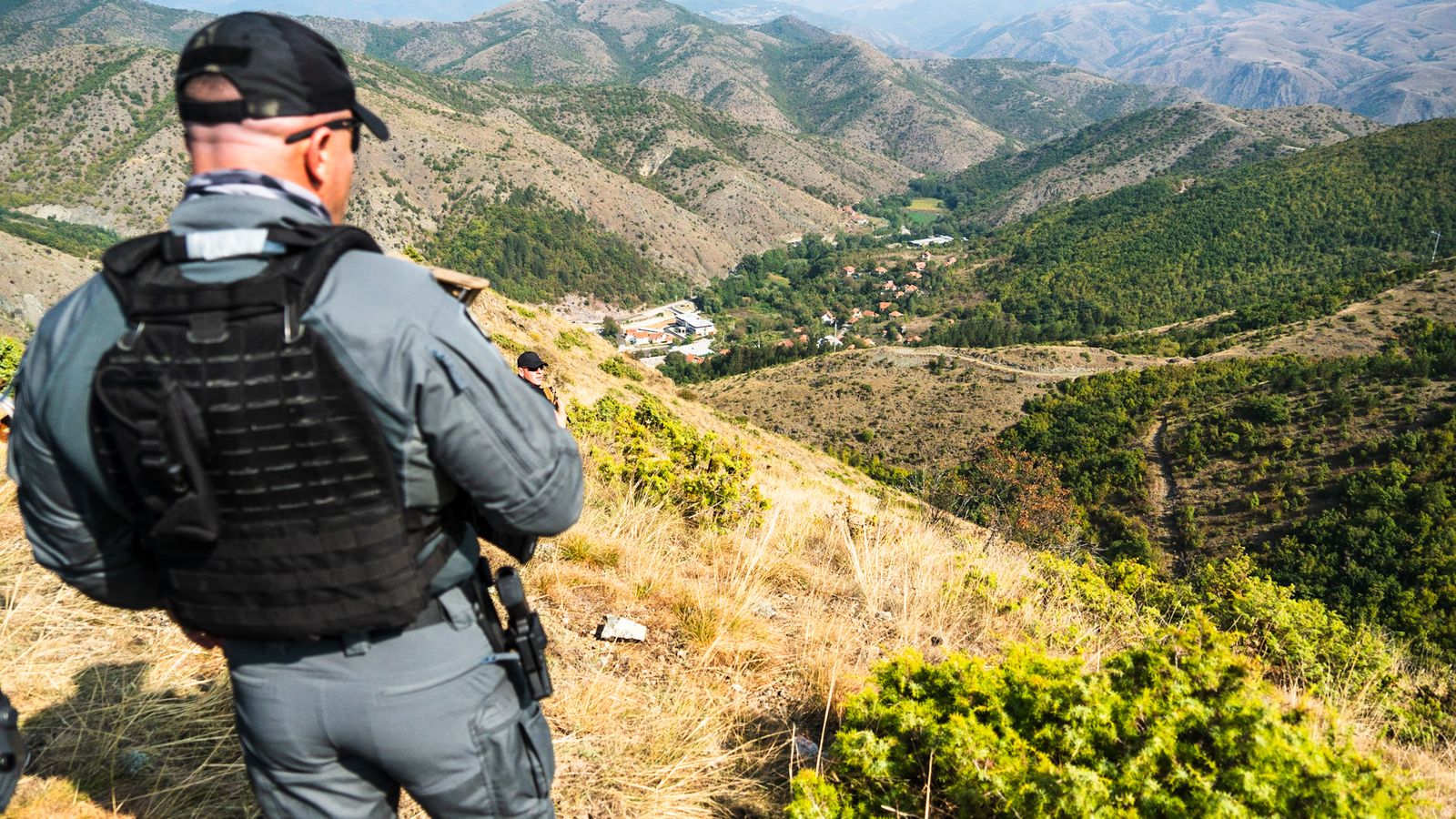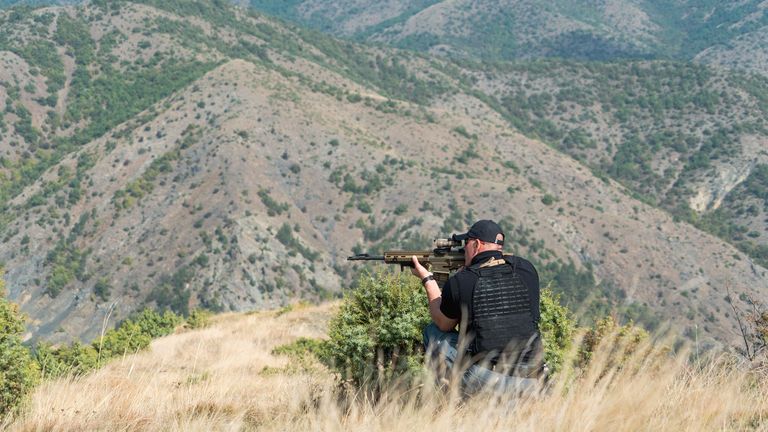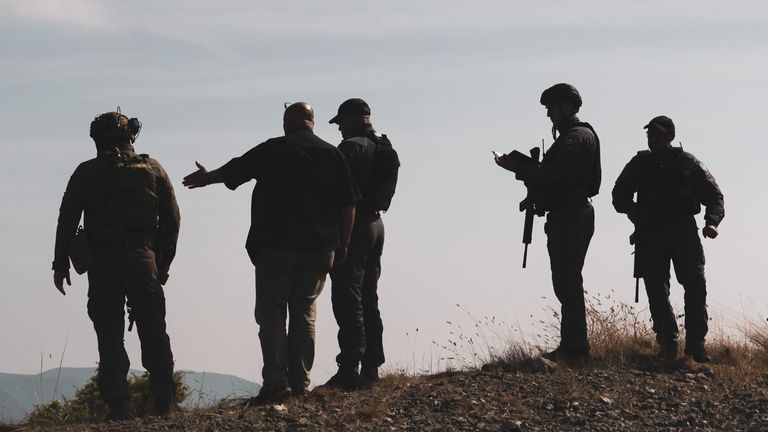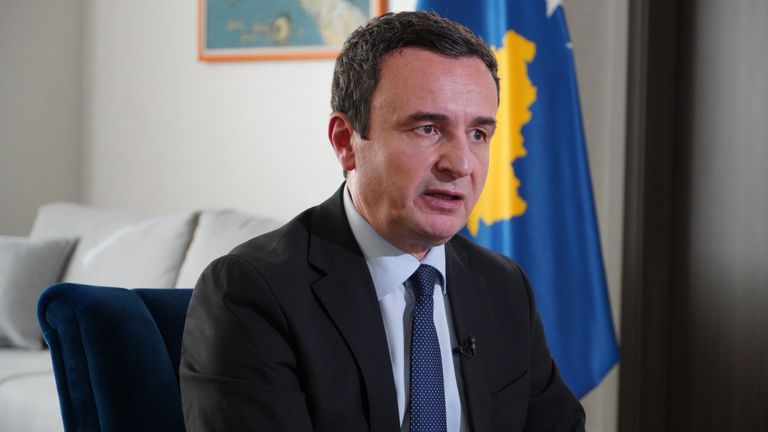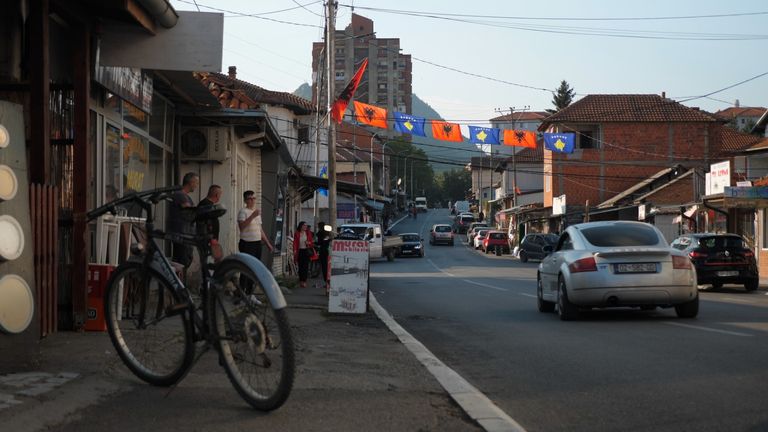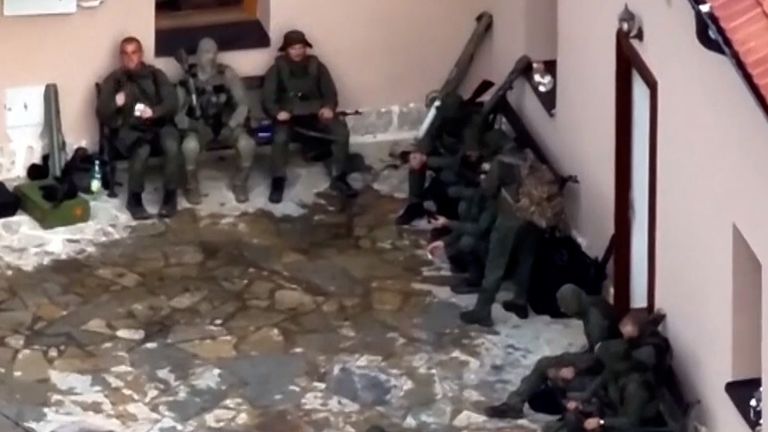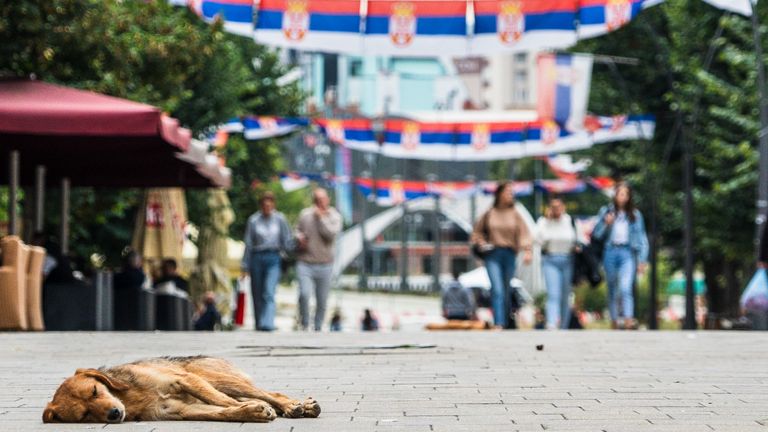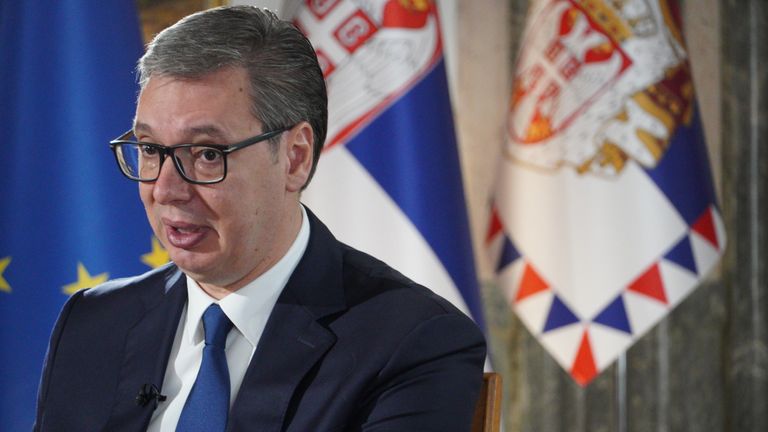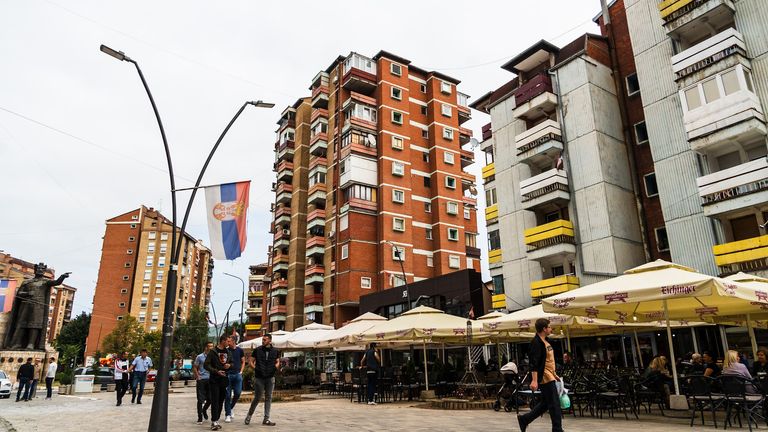They move efficiently down the mountain paths and through the brush.
The Kosovo police are reasserting their authority in these northern territories after gunmen stormed the village of Banjske in the valley below.
The attack, by more than thirty heavily armed ethnic Serb paramilitaries in late September was the worst explosion of violence in this nascent state for many years.
The siege lasted many hours and cost the life of one police officer – it also raised the spectre that another Balkan conflagration may be simmering below the surface of what for many had been a period of relative calm.
The reasons behind the uprising are disputed and point to the complications that are knitted into the fabric of life here, it also means there’s no room for complacency.
What is undeniable is that tensions remain extraordinarily high and the spectre of another war in Europe looms large, ringing alarm bells in Brussels and across the Atlantic in Washington DC.
The government in Kosovo claims that the attack was orchestrated in Belgrade. They point to the heavy weapons the paramilitaries used – they could, they argued, only have been obtained through ties to the state.
The Kosovo prime minister, Albin Kurti, appears visibly outraged and frustrated during an interview with Sky News. He’s demanding the international community takes a harder line with his Serbian neighbour.
“They deny because they are playing with Putin‘s playbook in Donbas. Little green men in northern part of Kosova. Not that little, but green men for sure, who wanted to start a war and divide Kosova,” he says.
The antecedents of this latest round of violence run deep. But the peace in Kosovo is undoubtedly fragile. It’s a complex patchwork of ethnicities and divided communities.
In Mitrovica, the closest city to Banjske, the splits are visible.
Read more:
Why have tensions flared up between Kosovo and Serbia and why are British troops being sent there?
On one side of the river, Kosovan Albanians, and on the other, Serbs – both communities fly their flags proudly and both sides have very different views about what should happen. It’s like two nations living under one roof, in a microcosm.
They are united in their concern about where all this could be leading.
Milos Gvozdic, an ethnic Serb, is clear: “We don’t want war or something else, we just want to be calm here, we need peace or something like that.”
Biondina Muzliukaj, an ethnic Albanian, is also fearful.
“For us it’s not easy to know that we cannot freely go to the north side, work there, we know that it’s our place, we know that it’s our city, but because of the tensions and because we are afraid that something can happen to us we cannot really freely move in that area.”
In Serbia, there’s also frustration at events. The government denies it had any role in the violence. It claims that it was an act of resistance to hardline nationalist policies which they claim are causing fear amongst the minority ethnic Serb population.
But President Aleksandar Vucic says he knows why this is happening.
“Everybody can understand, because those people were mainly expelled from their thresholds. Many of them were shot by Kosovo police, even kids, 11 years old, and no one was held accountable for that.”
It is hard to see a way out at the moment. Mediation talks by the EU have broken down and they’re unlikely to resume during this present period of crisis.
Kosovo unilaterally declared independence in 2008 after a bloody war in the late 1990s.
But Serbia and most ethnic Serbs living here have never recognised its independence. And that’s unlikely to change anytime soon.
For the moment though, more British peacekeepers have been drafted in under the NATO umbrella to stop another eruption of violence.
